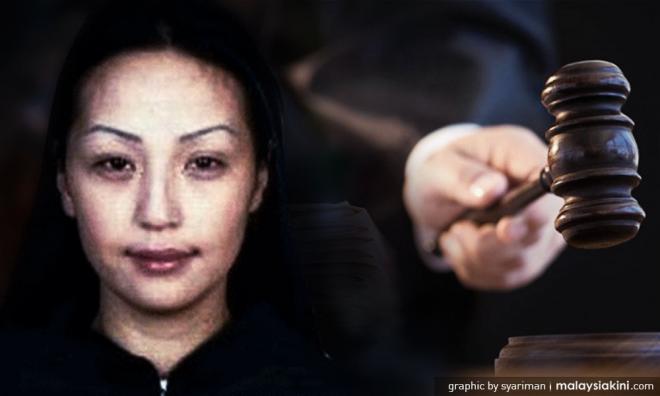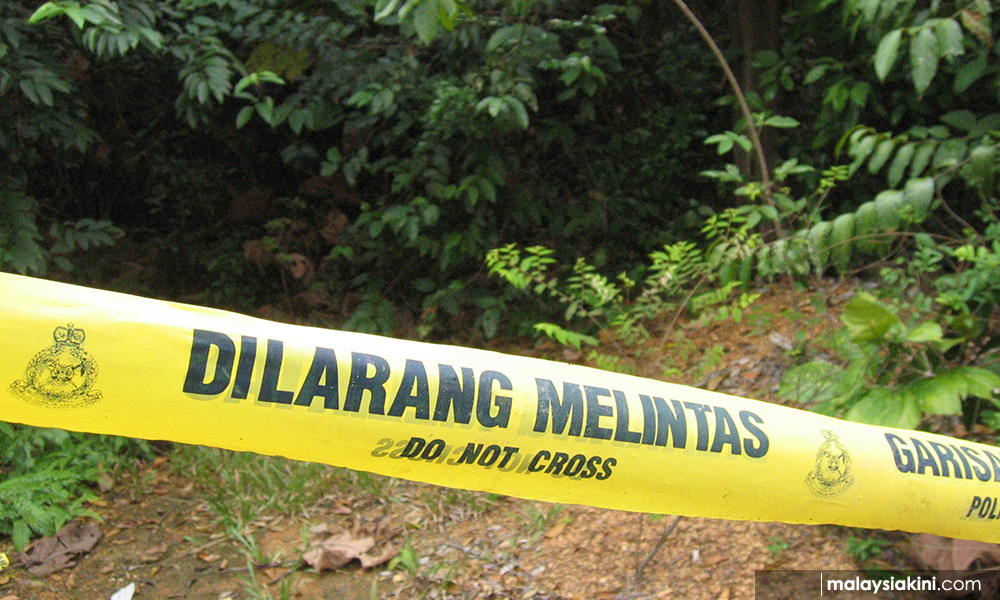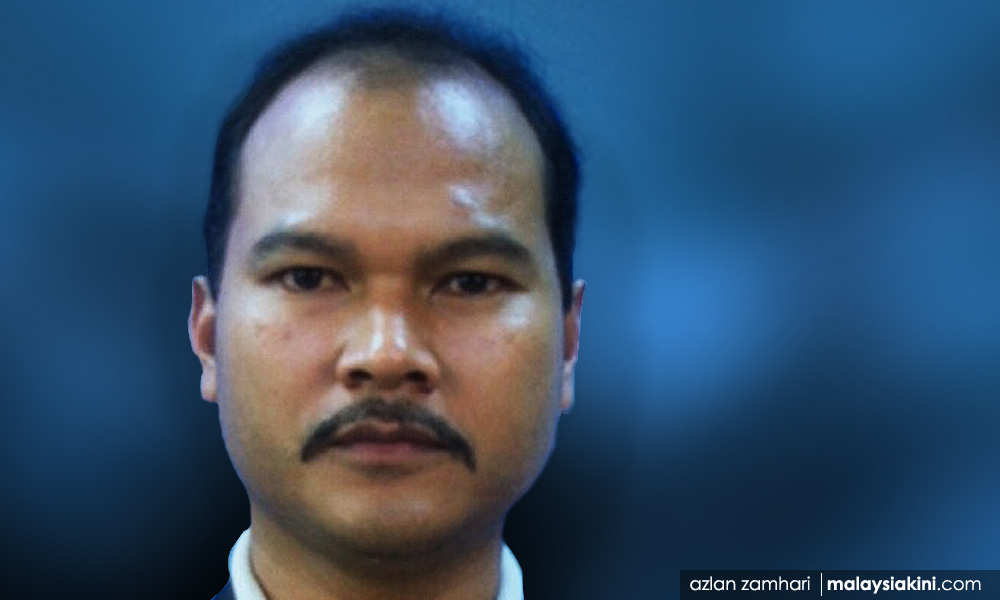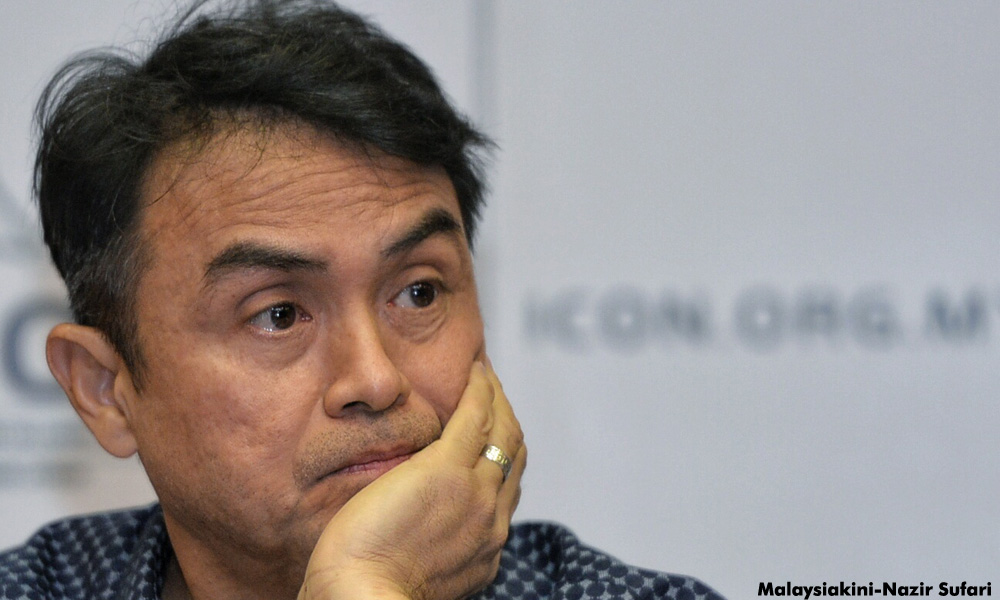Delegatus non potest delegare 5: The trial

It is not intended to burden the reader with the bland and monotonous details of the trial and the testimony of formal witnesses called for the prosecution.
The Malaysian public was left in no doubt as to who had "done it" even before the trial started.
They were more interested in why those who had "done it", did it. They hoped this would all be revealed as the trial proceeded.
Alas, this was not to be.
The motive was never pursued by the prosecution.
They were not interested in why these policemen had shot and blown up Altantuya. This may have proved embarrassing for some so it was avoided at all costs.
They felt they had sufficient evidence to placate the general public by securing a couple of convictions.
This was easy because Azilah Hadri and Sirul Azhar Umar had basically admitted they committed this murder by escorting the police to the detonation grounds up a hill in Puncak Alam, where poor Altantuya was found scattered among the belukar (bushes).
Their presence at the murder site the night she was murdered was well documented by mobile signal triangulation as well.
Combined with the fact that Sirul surrendered to the police all the jewellery he had stolen from Altantuya before he shot her, and that the police had found his slippers covered in Altantuya's blood in the back of his jeep with a shell casing, there was really not much else the prosecution needed.
There was never any doubt that Azilah and Sirul had driven Altantuya away from the scene she was involved in front of Razak Baginda's house the night she was murdered.
Private investigator P Balasubramaniam confirmed this in his evidence given as the first witness to be called by the prosecution.
Azilah and Sirul were the last persons seen with Altantuya before she was killed.
They were also caught on CCTV snooping around the corridors of Hotel Malaya the previous day.

Once the forensic specialists confirmed the bone fragments found at the scene of the murder (above) belonged to Altantuya, the fate of both Azilah and Sirul were sealed.
There was really not much else the prosecution needed to do to prove guilt.
Lawyers for Azilah and Sirul were caught between a rock and a hard place.
They knew what evidence the prosecution was going to produce even before the trial started. They would have been provided with copies of all documents incriminating their respective clients.
Even if these lawyers had been informed by their clients that this murder had been ordered by their superiors, how would this be a defence in law?
The only legal defences to murder are provocation, self-defence, or an alibi.
The excuse of having received orders from superiors would only assist in mitigation or plea bargaining, if at all this was possible.
But the strategy adopted was to basically deny their client's involvement and hope the prosecution would slip up. They didn't.
Because of this strategy, no questions were put to prosecution witnesses, by way of astute and lethal cross-examination, to suggest their respective clients had no reason to kill Altantuya, as an attempt to plant doubt.
The stage was not set for mitigation. It was a do-or-die decision.
If the contents of Azilah's latest statutory declaration (SD3) are to be believed, the reason for this becomes obvious.
Just suppose for one moment Azilah and Sirul's lawyers had asked their clients why they murdered Altantuya.
What would one imagine their respective answers to have been? "We don't know why we did it", or, would they have said, "We were ordered to do it"?
Isn't it more likely than not that the latter answer would have been given and if it was, did these lawyers bother to inquire from their respective clients as to who ordered them to do this, and for what reason? They must have.
Isn't it more likely than not that the latter answer would have been given and if it was, did these lawyers bother to inquire from their respective clients as to who ordered them to do this, and for what reason? They must have.

Razak Baginda was acquitted on Oct 31, 2008, at the end of the prosecution's case, which means he was not required to enter a defence.
Azilah and Sirul (above) were less fortunate. They were called to present their defences because the judge felt a prima facie case had been made out against them both.
Azilah gave evidence, in his defence, basically denying he was anywhere near Puncak Alam that fateful night.
Azilah gave evidence, in his defence, basically denying he was anywhere near Puncak Alam that fateful night.
On the other hand, Sirul chose to read a prepared statement from the dock (presumably prepared for him by his lawyers), also denying involvement, but strangely ended by saying this (as translated):
"I view this situation with concern because to me the actions by these people appear to be for the purpose of securing my conviction as a black sheep (scapegoat) that needs to be sacrificed to cover the malicious agenda of those not in court to face the consequences of their actions.
"I had no reason to injure, more so to take the life of the victim so cruelly.
“I appeal to this court, which is in the position and has the power to decide on whether I live or die, not to sentence me forthwith, which would only perfect their plan against me".
This really speaks volumes as to the reality of what was going on behind the scenes and lends credibility to the presumption that Sirul's lawyers knew there were others involved.
Azilah and Sirul were finally convicted and sentenced to death on April 9, 2009.

But what was really unprecedented as far as criminal law is concerned was the use of the contents of Razak Baginda's (above) affidavit, filed in support of his bail application, as grounds upon which his acquittal was based.
Even more surprisingly, this document was actually introduced into evidence by the prosecution. What could they possibly have been thinking?
The judge referred to this affidavit as "exculpatory evidence".
So Razak Baginda was required to say nothing. This was far better than a "sumpah laknat" and has set a new legal precedent.
All an accused is now required to do is to file an affidavit in order to get an acquittal. Brilliant strategy.
As to be expected, Azilah and Sirul filed appeals against their convictions to the Court of Appeal.
The prosecution, rather surprisingly, didn't pursue an appeal against Razak Baginda's acquittal.
So, we still don't know if it is legally acceptable for an accused to use an affidavit in a criminal trial to secure an acquittal.
The Court of Appeal was never called to decide on this point.
These appeals were delayed because the judge took three years to write his judgment.
They were eventually heard in 2013. Much happened in the intervening period. This shall be discussed in the next part.
AMERICK SIDHU is a senior lawyer representing A Santamil Selvi, widow of private investigator P Balasubramaniam, in her lawsuit against former prime minister Najib Abdul Razak and a number of others over an alleged conspiracy linked to the murder of Altantuya Shaariibuu. - Mkini
✍ Credit given to the original owner of this post : ☕ Malaysians Must Know the TRUTH
🌐 Hit This Link To Find Out More On Their Articles...🏄🏻♀️ Enjoy Surfing!



















Post a Comment